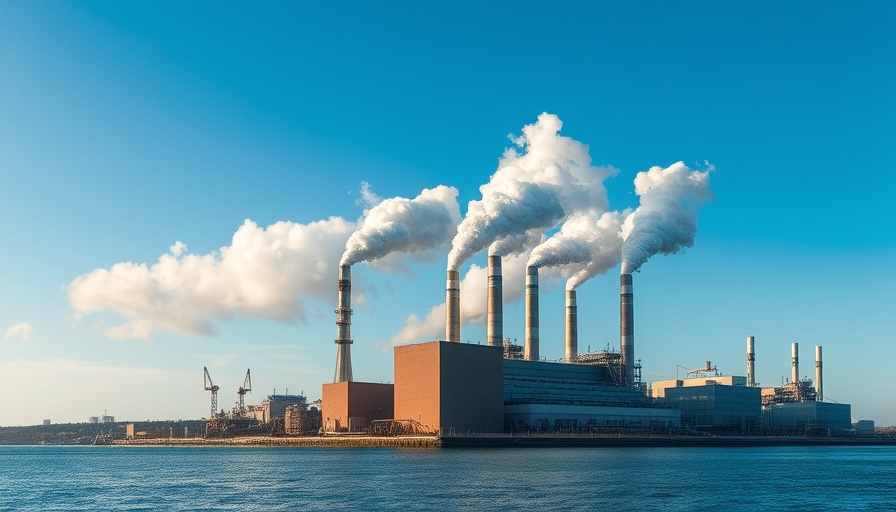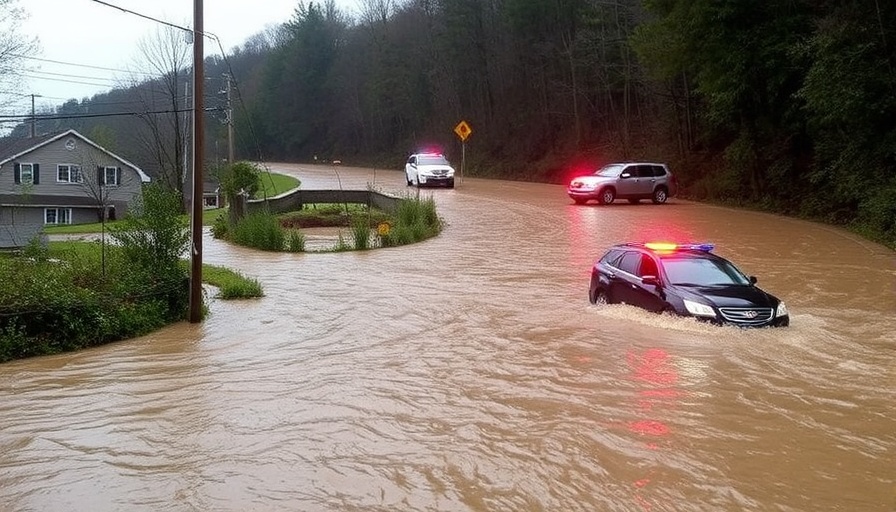
Uncovering the Hidden Costs of Climate Change
According to a groundbreaking study by researchers at Dartmouth College, the revenues generated by just 111 of the world’s largest companies have wreaked significant havoc on our environment, resulting in an estimated $28 trillion in climate damage. This staggering figure sets a daunting backdrop to the sustainability efforts homebuyers, sellers, and property investors face in today's real estate market.
Rethinking Real Estate in Light of Climate Accountability
With more consumers becoming environmentally conscious, the study's findings raise pressing questions for the property market. Buyers are increasingly interested in the long-term viability of homes affected by climate change. For instance, properties in flood-prone areas may not only face diminished value but also increased insurance premiums and renovation costs. Understanding the financial accountability of these companies might inspire more sustainable choices in the housing market.
The Fossil Fuel Footprint: Who's Responsible?
The study reveals that the brunt of climate damage is saddled primarily on ten fossil fuel giants like Chevron, BP, and ExxonMobil. Surprisingly, states like Gazprom and Saudi Aramco alone account for over $4 trillion in damages. This dominance highlights an urgent need for regulatory measures and accountability systems that can translate into buyer protections in real estate. As more awareness spreads, homebuyers may have grounds to demand assurances from sellers regarding climate impact.
Climate Litigation and Investor Awareness
More than 68 climate damage lawsuits globally illustrate the growing demand for accountability. This litigious environment could extend to the real estate sector, compelling developers to adopt greener building practices and materials, consequently attracting buyers who prioritize sustainability in their investment decisions.
Future Value Versus Short-Sighted Investments
For property investors, the long-term value of sustainable homes is becoming increasingly clear. Regions perceived as vulnerable to climate change can expect a decrease in market interest, ultimately affecting property values. Therefore, aligning investment strategies with environmentally responsible practices not only mitigates risk but could potentially yield a higher return in 5-10 years.
Actions to Take for a Sustainable Future
So, what steps can homebuyers and investors take? Investing in energy-efficient homes, seeking properties with sustainable certifications, and considering the future climate resilience of properties are just a few strategies potential buyers can adopt. Staying informed of legal actions that aim for climate accountability could empower consumers to support developers who prioritize eco-friendly practices.
Conclusion: The Urgency of Sustainable Choices
With companies now more accountable for climate impacts, homebuyers, sellers, and investors must take careful stock of their choices. Understanding the effects of climate change on the housing market not only informs better investment but also contributes to the larger fight against environmental degradation. As you navigate the Dumfries market, remember sustainability is not just an ideal, but a necessity that informs a valuable future.
**Call to Action:** If you’re ready to embrace a sustainable lifestyle in your home, reach out today to explore eco-friendly housing options in the Dumfries market. Together, let’s create beautiful, responsible living spaces that coalesce style with sustainability.
 Add Row
Add Row  Add
Add 





 Add Row
Add Row  Add
Add 








Write A Comment